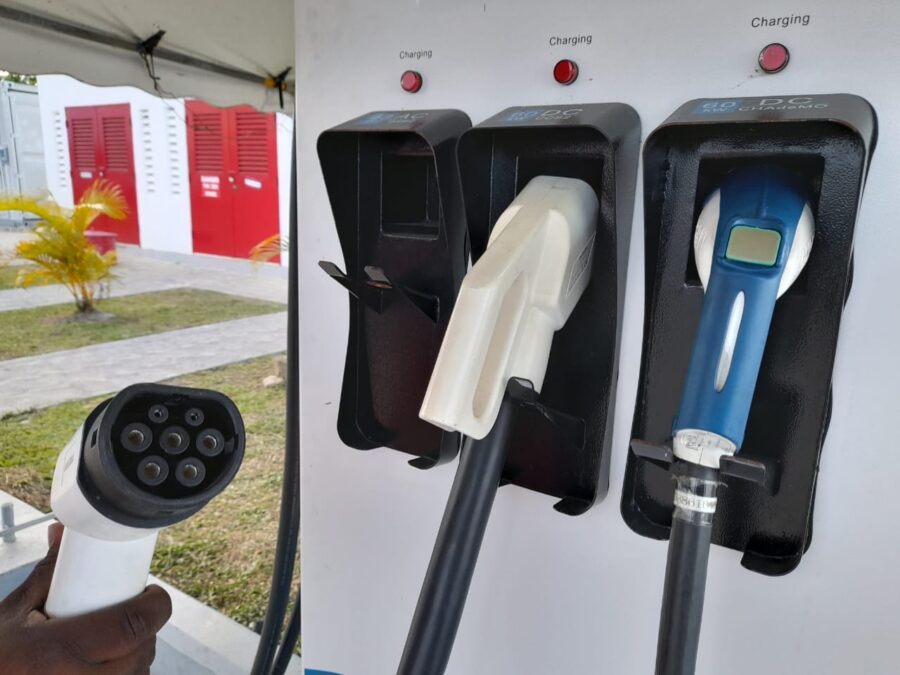By Sue-Ann Wayow
WHILE the move to the use of fully electric vehicles is welcomed, it will not happen in an instant.
This is according to President of the Trinidad and Tobago Automotive Dealers Association (TTADA) Visham Babwah who said the local market was not yet ready for fully electric vehicles.
Babwah told AZPNews.com on Friday that he was concerned about the transition mentioned by Prime Minister Dr Keith Rowley last Tuesday night during the Conversations with the Prime Minister segment.
Prime Minister Dr Keith Rowley said, “Government will move very soon to ensure that all public vehicles – not just buses – are electric.”
He added that the Finance Ministry should be aggressively encouraging the public purchase of electric vehicles.
However, Babwah said the average cost of a used electric car started from about $180,000 which was too expensive for the average income earner and there were few models available.
For a new electric vehicle, the cost might be an average of $300,000 to $350,000 for a Korean or Japanese model which was the preferred choice by the driving population.

The more expensive ones come from the European countries would be manufactured by BMW, Mercedes-Benz and Audi and would cost at least $450,000 new.
Babwah said, “Electric cars are not as available as hybrid cars as they are recent on the market. So it is also a bit difficult to get the used cars that have a two-year life.”
He explained that currently, legislation allows for the purchase of used electric vehicles for up to two years.
“This means that before two years are up, they have to be in the country. It means that you are purchasing an almost new vehicle which really does not make sense.”
Babwah said he has no problem with the thrust to fully electric vehicles but it will have to be feasible.
“It is there for the taking. We have to know how the regulation is designed to benefit the country. It will be a plus because it will aid with the reduction in carbon emissions, fuel prices are going to explode and this could ease the burden by making transportation much cheaper.”
He also said it would not be wise to have an entire fleet of fully electric public vehicles as stated by the Prime Minister.
But, for the interim, he is suggesting that the focus be on hybrid vehicles which were less expensive and had a wider variety to choose from.
Babwah has been importing hybrid cars since 2011 which he says burns 50% less fuel than an internal combustion engine of a vehicle about the same size which was significantly less. The price was also more conducive to the majority of the driving population who were mostly from the low and middle income earning bracket.
And with the conflict with Russia and Ukraine, cars are going to become less available.
“Life is going to be very difficult and we have to adjust. We have to cater for the lower and middle-income person,” Babwah said.
He also suggested that import taxes on those vehicles be removed and that four years be allowed for the importation of electric vehicles and six years on all other vehicles.
Babwah also said the Government made a blunder with the large investment into the use of CNG as it was now becoming obsolete.
Given the global situation, if prices at the pump needed to be increased, then it should, however, if Government better-managed expenditure, it would be able to maintain the fuel subsidy, he said.
AZPNews.com also spoke with a pump attendant at the new NP service station at Preysal, Couva which is equipped with one of the four electric vehicle charging stations in Trinidad.
Jesse Mohammed told AZPNews.com that very few cars show up to charge their vehicles at no cost via equipment that is fully solar-powered.
He said on average it can take up to 45 minutes to fully charge a vehicle.
Users of those vehicles can also charge their vehicles at home, Babwah said.
![]()













